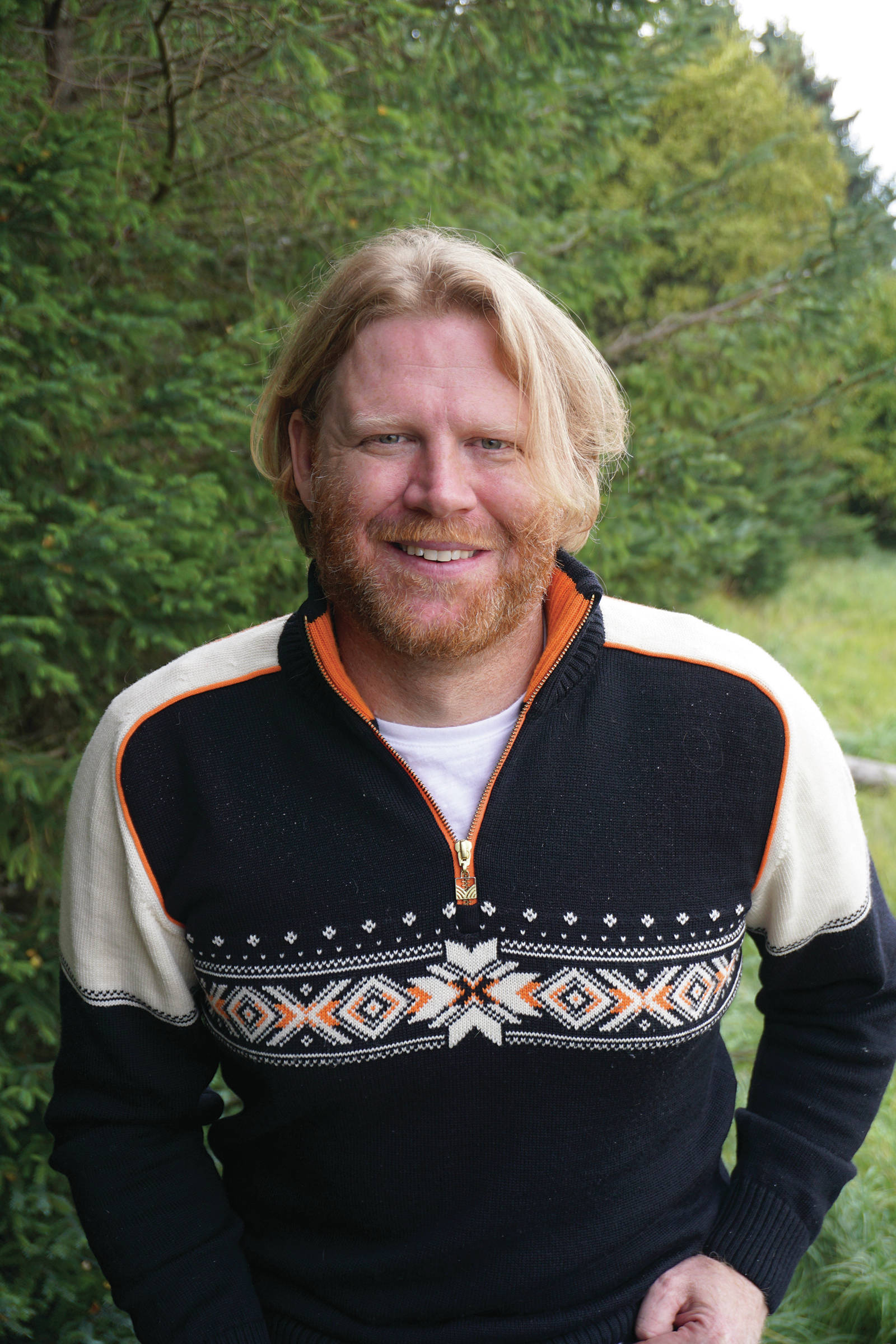Homer City Council candidate Joey Evensen falls into a demographic emerging as part of the city’s political scene. Like council members Rachel Lord and Heath Smith, Rep. Sarah Vance (R-Homer), and fellow candidate Storm Hansen-Cavasos, Evensen is a parent in his or her 30s and 40s with children.
Evensen has been back in Homer since 2016, and lives in the Ocean Drive Loop area in a house tucked back in the woods with his wife, Crystal, and their 1-year-old girl, Honor. A school teacher with the Connections home-school program, Crystal is on parental leave, working part-time as a substitute teacher. Evensen, 45, teaches science part time as an adjunct instructor at Kachemak Bay Campus, an extension of Kenai Peninsula College and the University of Alaska Anchorage, where he started college when he got his associate of arts degree in 1992. A geologist with a specialty in geochemistry, Evensen also has a business, Break Through Inc., or BRI, a geological consulting firm.
But Evensen also exemplifies another demographic: Homer-raised children who have gone away to college, married, started careers and then returned home. His story is similar to that of the new KBBI Public Radio General Manager, Joshua Krohn.
Born Outside, Evensen moved to Homer in 1986 with his mother, Deb Evensen, when he was in middle school. His mother is known in the Homer social work community for her efforts to increase awareness and prevention of FASD, fetal alcohol spectrum disorder.
Evensen got started in geology at Homer Middle School when he did a cross-curriculum course with Hal Neese and a course on the geology of the Kenai wih Tim Daugherty.
“I was hooked early on,” he said.
Evensen did a fast track through Homer High School and his first round of college, graduating with a GED diploma and then getting an associate of arts degree from the Kachemak Bay Campus.
“That made a difference,” he said of his unusual approach to high school and college. “It gave me the freedom I was looking for.”
Evensen studied at the University of Alaska Fairbanks and later the Colorado School of Mines in Golden, Colorado. He got a doctorate from the University of Oklahoma in Norman. After university, Evensen worked as a research petroleum scientist with oil companies, including Shell and Exxon, eventually settling in Texas. He also had worked as a commercial fisherman during the Exxon Valdez oil spill.
“I was a claimant with the Exxon Valdez oil spill at the same time I was working at Exxon,” he said.
His work as a commercial fisherman and scientist gives him a good perspective on Homer, Evensen said.
“I feel like I’ve touched a number of subcultures in Homer,” he said. “It’s good to not label yourself.”
His commercial fishing experience and knowledge of science, but also of industry, gives him both depth and breadth in perspective.
“I think that lends itself to city council,” he said, “I feel like I can represent the subgroups in Homer.”
For example, in his geochemistry work, Evensen said he’s learned about arsenic in water and how it might be found in water supplies. Similarly, there can be issues with silicate dust on roads — dust that can cause respiratory diseases.
“It’s something no one ever talks about,” he said.
Evensen said he felt compelled to run for city council because things aren’t running well.
“I think if they were running well, there wouldn’t be a need to step up,” he said. “…This isn’t something I want to do. It’s something I feel obliged to do.”
As a scientist, Evensen has learned what he calls “a cold eyes perspective.” That means taking a fresh, objective look at information or issues. Leaving Homer decades ago and returning also has given him a new vision of Homer.
“Homer is changing,” he said.
It’s becoming similar to the ski resort of Aspen, Colorado in both good and bad ways.
“We’re the city where Alaskans recreate. That’s a good thing to be,” Evensen said.
The down side of Aspen is that it has become a rich tourist’s recreation area, with rising housing costs that price working class people — the one who work in tourist industry — out of the market.
“A functional Aspen for Alaska is what we want,” Evensen said.
Reach Michael Armstrong at marmstrong@homernews.com.


